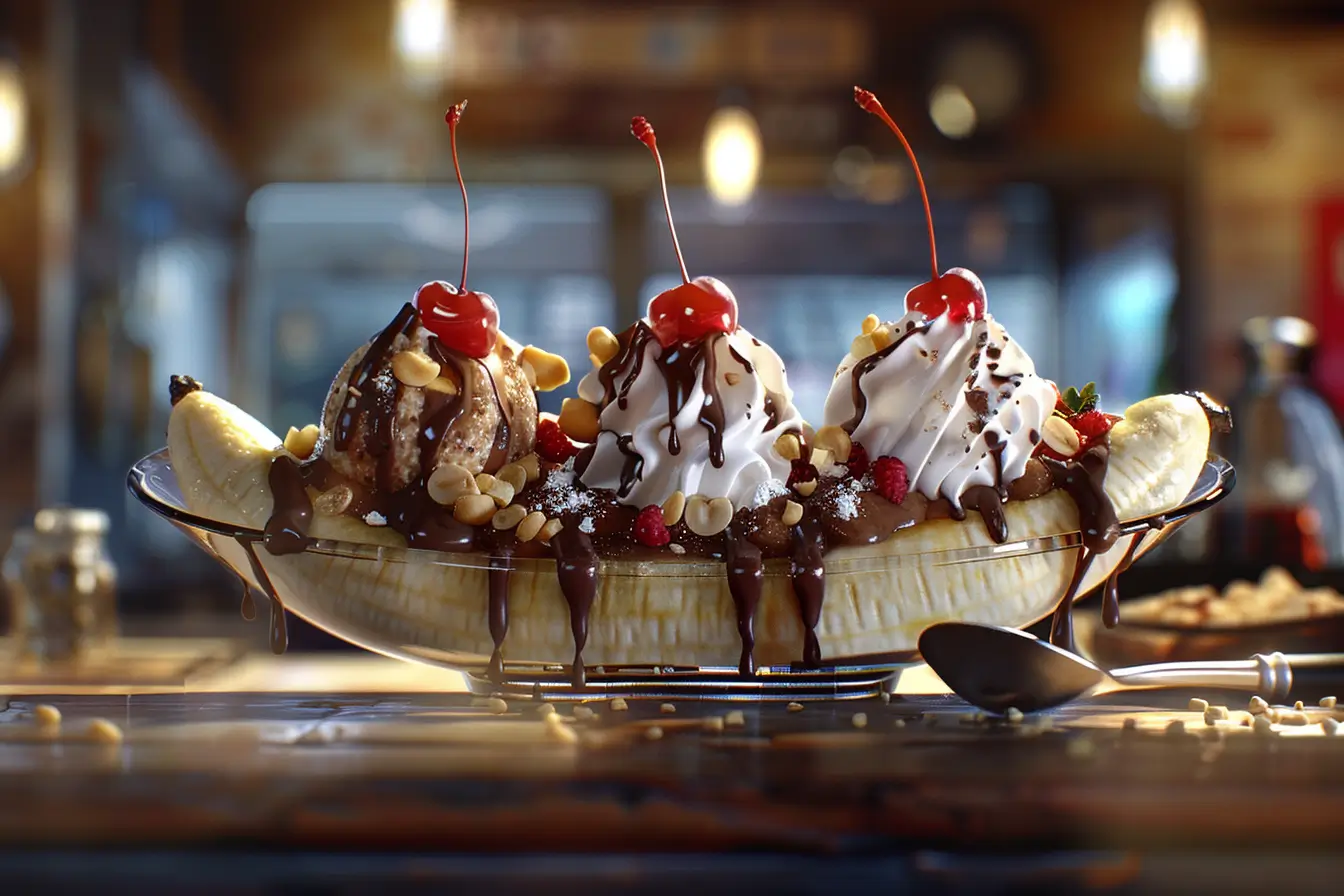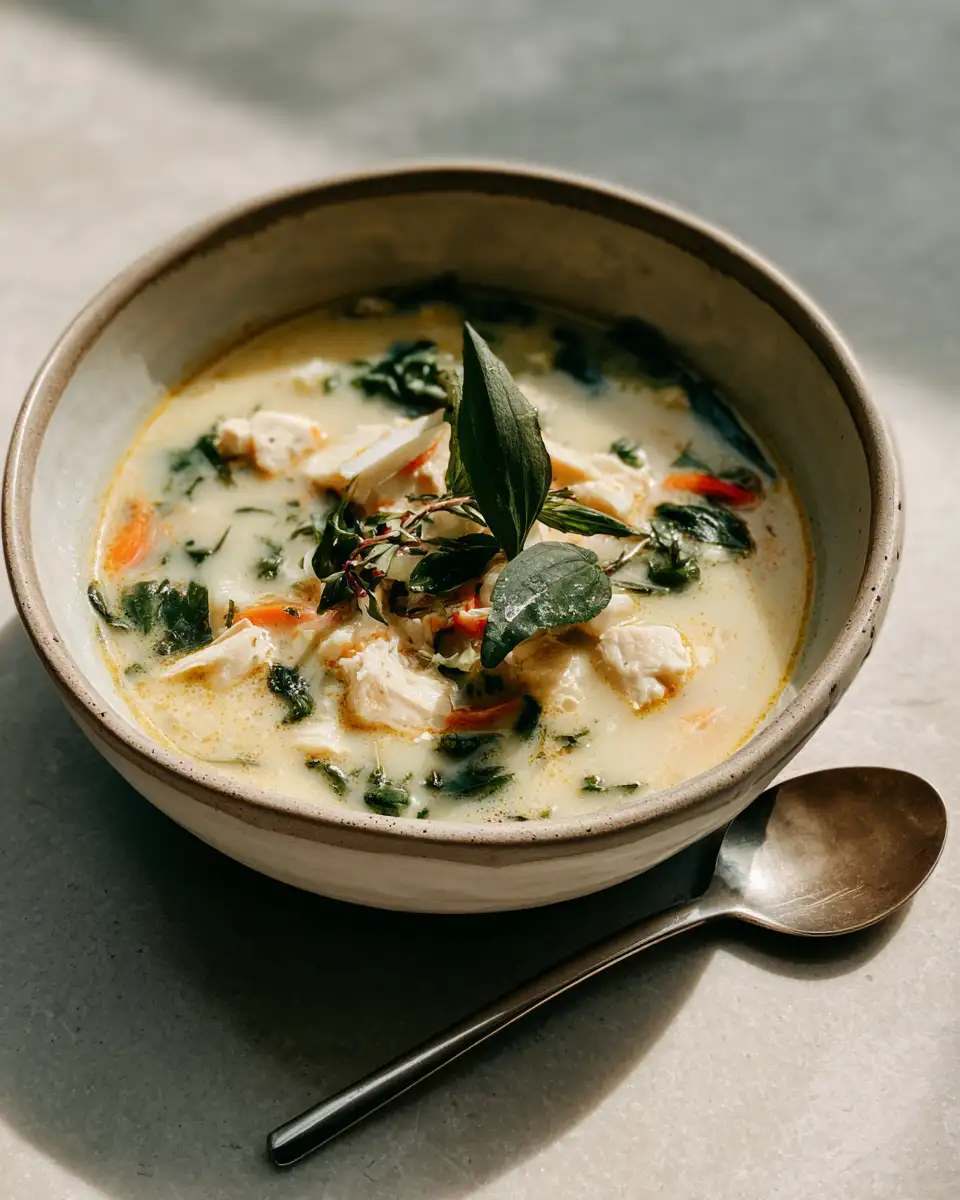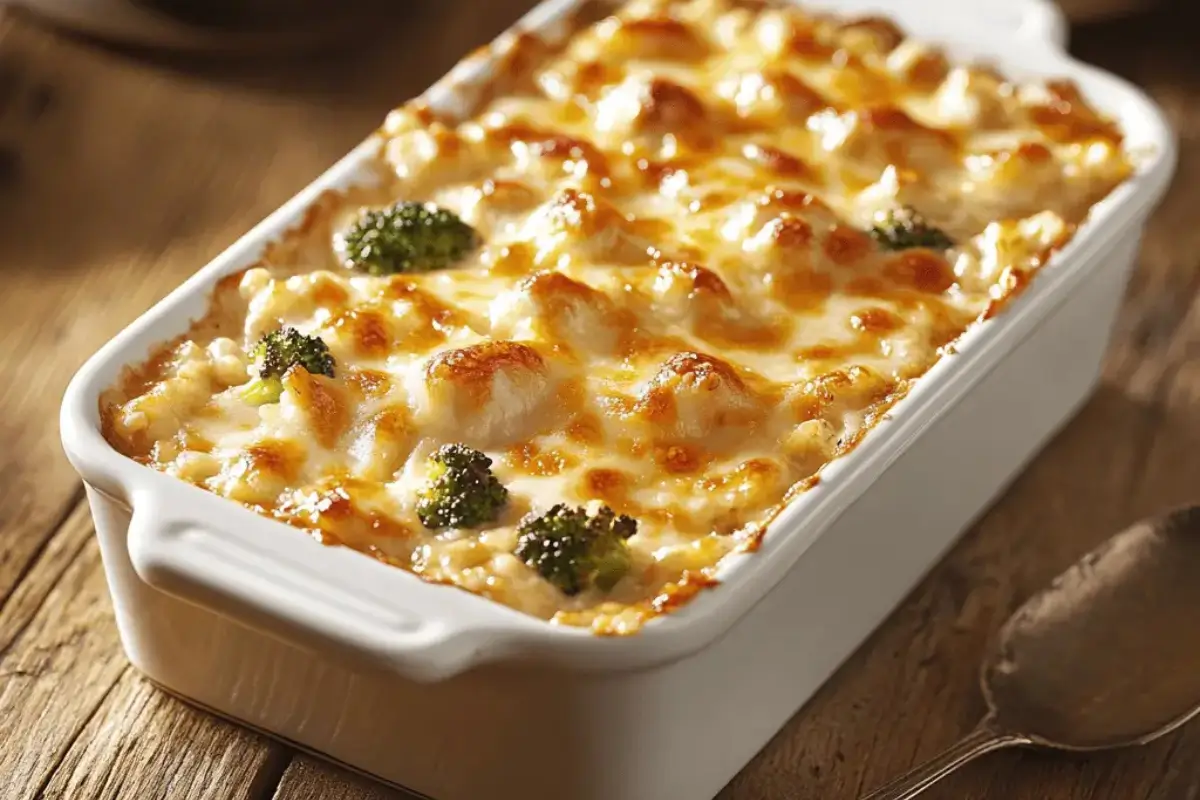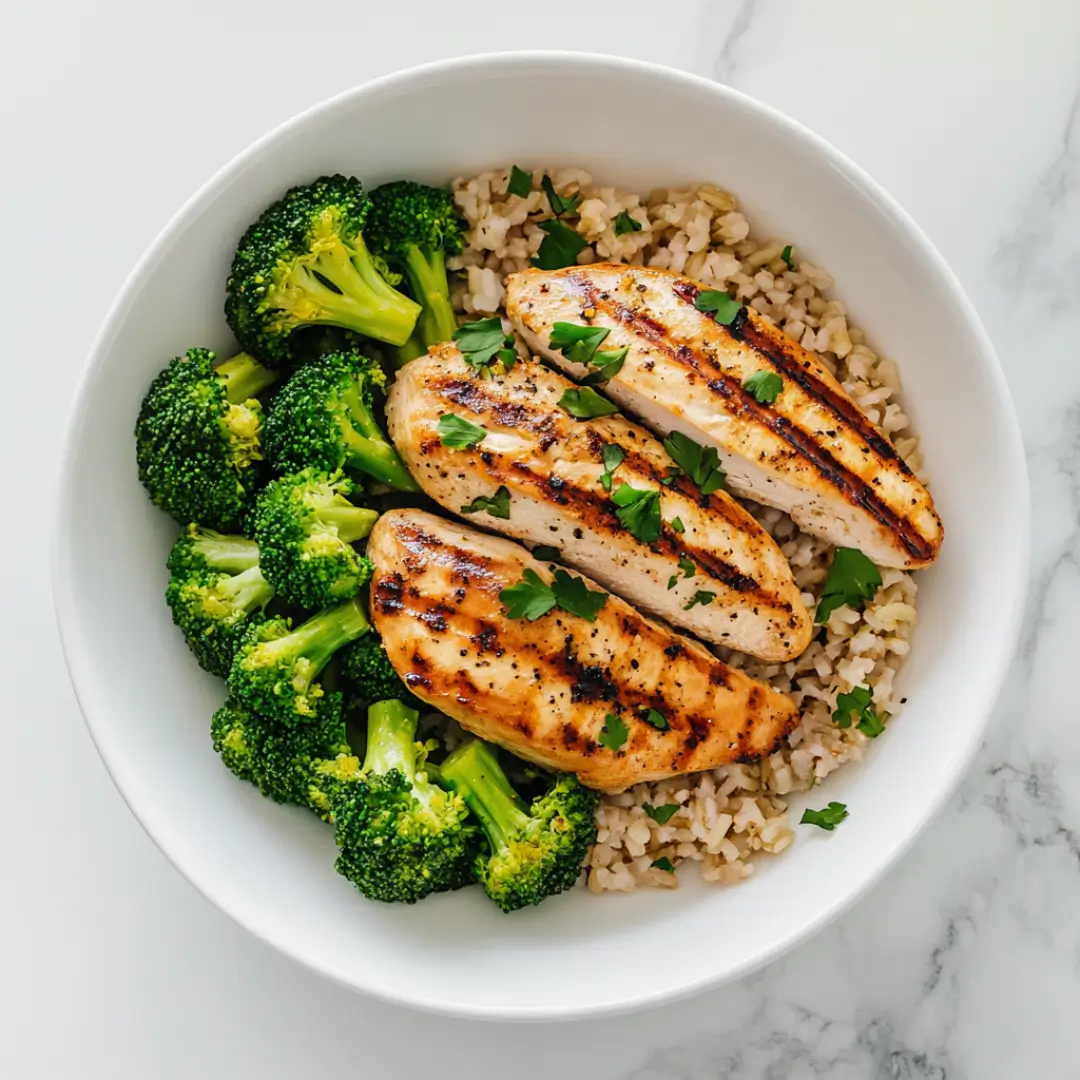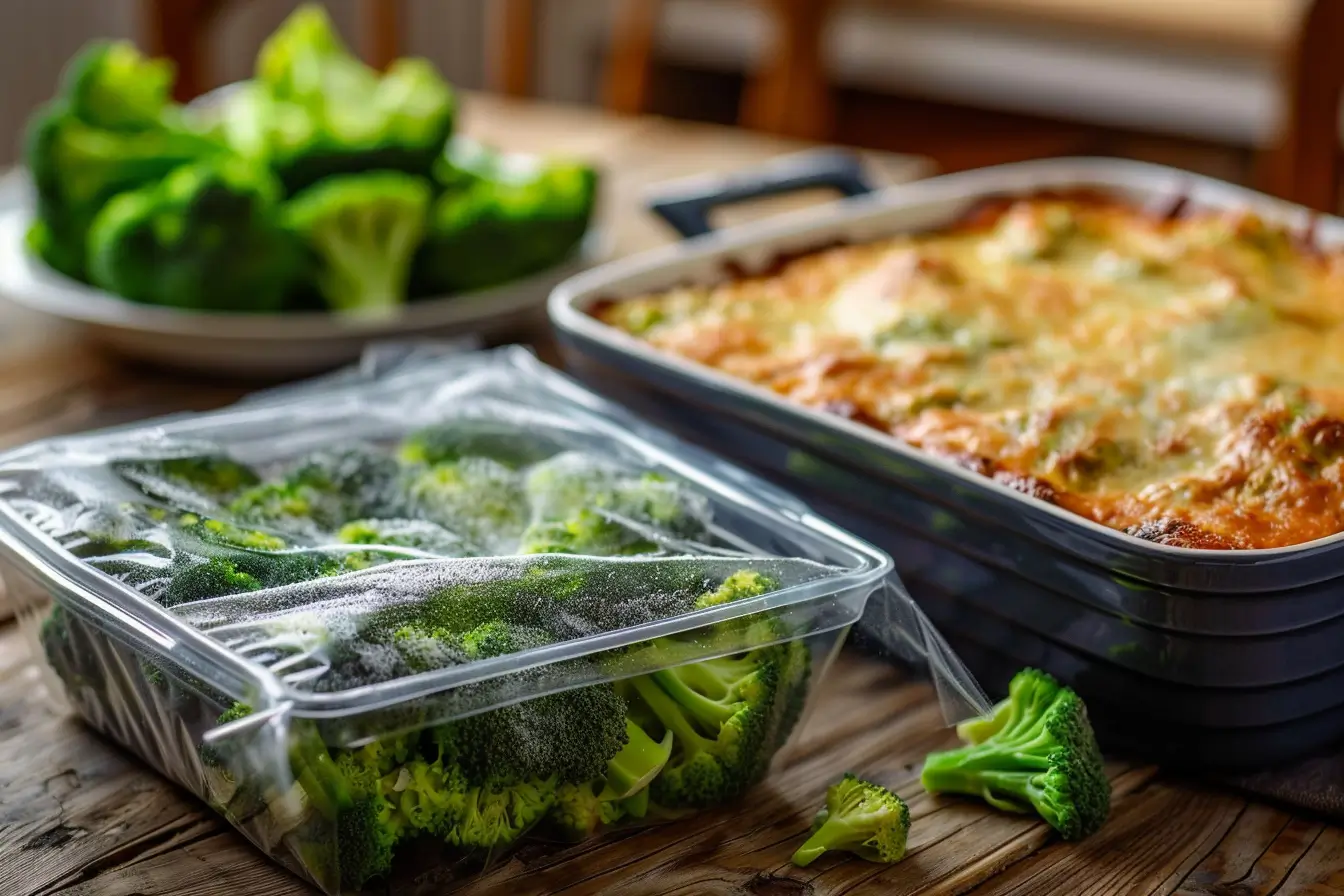Banana splits have been a classic dessert for decades, enjoyed by many for their rich combination of bananas, ice cream, chocolate, and toppings. But with growing concerns about health and nutrition, many wonder: is a banana split good or bad for you? This article dives deep into its nutritional value, potential health benefits, drawbacks, and alternatives to help you make an informed choice.
What Is a Banana Split? A Quick Overview
A banana split is a traditional American dessert typically served in a long dish. It consists of a split banana topped with three scoops of ice cream (usually vanilla, chocolate, and strawberry), chocolate or caramel syrup, whipped cream, nuts, and a cherry on top. While it is undeniably delicious, its high sugar and calorie content have raised concerns.
Nutritional Breakdown of a Banana Split
Understanding the nutritional composition of a banana split is essential in determining whether it is a healthy choice.
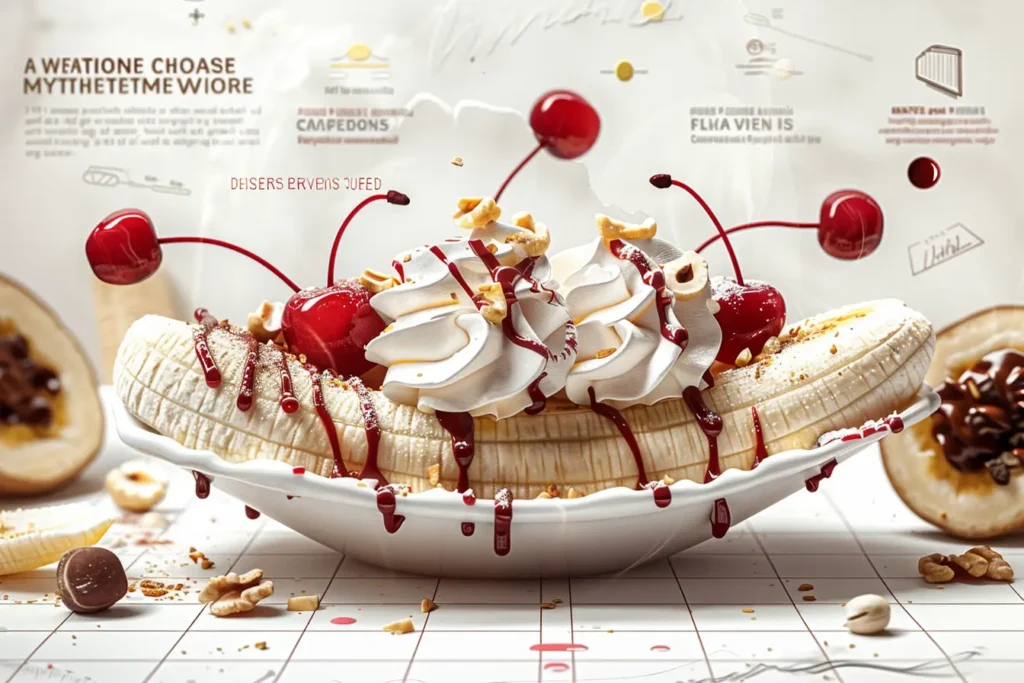
Calories and Macronutrients
A standard banana split contains approximately:
| Nutrient | Amount per Serving |
|---|---|
| Calories | 500-700 kcal |
| Carbohydrates | 80-100g |
| Sugar | 50-70g |
| Protein | 6-10g |
| Fat | 15-25g |
Sugar Content: A Sweet Concern
The high sugar content in banana splits is a major issue. Excessive sugar intake has been linked to obesity, diabetes, and other metabolic disorders. While bananas contain natural sugars, the added syrups and ice cream significantly increase the sugar load.
Vitamins and Minerals: Any Health Benefits?
Despite its high sugar and fat content, a banana split does provide some nutritional benefits, particularly from the banana itself. Bananas are rich in potassium, vitamin C, and fiber, which contribute to heart health, digestion, and energy levels. However, these benefits may be outweighed by the excessive calories and sugar found in the dessert.
Are Banana Splits Unhealthy? The Pros and Cons
Health Benefits of Banana Splits
Some advantages of eating banana splits include:
- Good source of potassium: Bananas help maintain healthy blood pressure levels.
- Provides energy: The combination of carbohydrates and natural sugars offers a quick energy boost.
- Calcium from ice cream: Dairy-based ice creams contribute to bone health.
The Downsides: Too Much Sugar and Fat?
While banana splits have some benefits, the cons often outweigh them:
- High in sugar: Can lead to insulin spikes and increased risk of diabetes.
- Calorie-dense: May contribute to weight gain when consumed in excess.
- Artificial additives: Some syrups and ice creams contain preservatives and artificial flavors.
Is It Safe to Eat a Banana That Split?
Some people worry that a banana splitting open naturally might indicate spoilage. Here’s what you need to know.
Why Do Bananas Split?
Bananas can split naturally due to over-ripeness or exposure to extreme temperatures. In most cases, this does not mean the fruit is unsafe to eat.
Can You Eat a Naturally Split Banana?
Yes, as long as the banana does not have mold or an unpleasant smell, it is safe to eat. However, if the banana has been exposed to air for too long, it may lose its freshness.
Is Blending Bananas Bad for You?
Does Blending Affect Nutritional Value?
Blending does not significantly reduce the nutritional content of bananas, but it does break down the fiber, making the sugars more easily absorbed by the body. This can lead to quicker spikes in blood sugar levels.
Does Blended Banana Spike Blood Sugar Faster?
Yes, because blending disrupts the fiber structure, the body processes the sugar more rapidly, leading to a higher glycemic response compared to eating a whole banana.
Can Diabetics Eat Banana Splits?
The Impact of Banana Splits on Blood Sugar
Banana splits are generally not recommended for diabetics due to their high sugar content. However, portion control and ingredient modifications can make them safer.
How to Make a Diabetic-Friendly Banana Split
For a healthier version, consider:
- Using sugar-free ice cream or yogurt.
- Choosing dark chocolate instead of sugary syrups.
- Adding nuts for protein and healthy fats.
Healthier Alternatives to Traditional Banana Splits
Low-Sugar Banana Split Recipes
Replacing traditional ice cream with Greek yogurt and opting for fresh fruit toppings can create a lower-calorie alternative.
Swaps for Healthier Ingredients
Here are some ingredient swaps to make banana splits healthier:
| Traditional Ingredient | Healthier Alternative |
|---|---|
| Ice Cream | Frozen Yogurt or Banana Nice Cream |
| Chocolate Syrup | Dark Chocolate or Cacao Nibs |
| Whipped Cream | Coconut Whipped Cream |
Expert Tips on Enjoying Banana Splits Without Guilt
Portion Control: How Much Is Too Much?
Limiting your portion to a small serving and balancing it with other healthy meals can help you enjoy a banana split without excessive calorie intake.
Balancing Your Diet to Fit in a Treat
Eating nutrient-dense meals throughout the day allows you to occasionally indulge in a banana split without negatively affecting your health.
Final Verdict: Should You Eat Banana Splits?
Banana splits are a delightful treat, but they should be enjoyed in moderation. While they provide some nutritional benefits, their high sugar and calorie content make them an occasional indulgence rather than a daily habit.
FAQs: Answering Your Burning Questions
Are banana splits unhealthy?
Banana splits are high in sugar and calories, making them an unhealthy choice if consumed frequently. However, healthier variations can be made.
Is it safe to eat a banana that split?
Yes, as long as there are no signs of spoilage, a naturally split banana is safe to eat.
Is blending bananas bad for you?
Blending bananas can cause quicker blood sugar spikes, but it does not remove their nutrients.
Can diabetics eat banana splits?
Diabetics should avoid traditional banana splits, but they can enjoy a modified version with sugar-free and lower-carb ingredients.
How to Make a Healthier Banana Split Without the Guilt
For those who love banana splits but want a healthier version, there are several ways to modify the ingredients while keeping the dessert delicious.
Choosing a Healthier Ice Cream Alternative
Traditional ice cream is high in sugar and fat. A better alternative is using Greek yogurt, frozen banana puree (also known as banana “nice cream”), or dairy-free options like almond milk or coconut milk-based ice cream.
Using Natural Sweeteners Instead of Sugary Syrups
Chocolate and caramel syrups add significant sugar content to a banana split. Instead, consider using:
- Dark chocolate with at least 70% cocoa, melted for drizzling.
- Raw honey or pure maple syrup in small amounts.
- Fresh berries blended into a natural fruit sauce.
Adding Protein and Fiber
To make a banana split more balanced, adding ingredients rich in protein and fiber can help slow sugar absorption. Consider:
- Chopped nuts like almonds, walnuts, or pecans.
- Chia seeds or flaxseeds for added fiber.
- Nut butter drizzled on top for healthy fats.
Portion Control and Frequency
Even with healthier ingredients, portion control is key. Instead of eating a full-sized banana split, consider splitting it with someone or making a smaller portion. Enjoying it occasionally rather than regularly will also help maintain a balanced diet.
Healthier Banana Split Recipe
Here’s a simple recipe for a healthier banana split that reduces sugar and unhealthy fats while keeping the flavor intact.
Ingredients:
- 1 medium banana, sliced lengthwise
- ½ cup Greek yogurt (vanilla or plain)
- 1 tablespoon dark chocolate chips (melted)
- ¼ cup fresh strawberries, sliced
- 1 tablespoon chopped almonds or walnuts
- 1 teaspoon chia seeds
- 1 tablespoon unsweetened shredded coconut (optional)
Instructions:
- Place the banana halves in a serving dish.
- Spoon Greek yogurt over the banana slices.
- Drizzle melted dark chocolate over the yogurt.
- Top with fresh strawberries, chopped nuts, and chia seeds.
- Sprinkle with shredded coconut if desired.
- Enjoy immediately.
Is Banana Split Good or Bad for You Compared to Other Desserts?
Comparing banana splits to other popular desserts can help determine where they fit into a balanced diet.
| Dessert | Calories | Sugar | Fat |
|---|---|---|---|
| Banana Split | 500-700 kcal | 50-70g | 15-25g |
| Chocolate Cake | 350-500 kcal | 40-60g | 10-20g |
| Fruit Salad with Yogurt | 150-250 kcal | 20-30g | 2-5g |
| Ice Cream Sundae | 400-600 kcal | 45-65g | 15-30g |
While banana splits contain beneficial nutrients from the banana and possible toppings like nuts, they still rank high in calories and sugar compared to lighter options like fruit salads with yogurt.
Should You Avoid Banana Splits or Are They Good for You?
Banana splits are not inherently bad, but moderation is crucial. Occasional indulgence is fine if balanced with a nutrient-rich diet and an active lifestyle. The key is making conscious choices about portion sizes and ingredients.
Who Should Avoid Banana Splits and Who Can Benefit?
- Individuals with diabetes should opt for a low-sugar version.
- People following a strict weight-loss plan may want to reduce portion sizes.
- Those with lactose intolerance should choose dairy-free alternatives.
When Is Eating a Banana Split a Healthy Choice?
- As a post-workout treat when paired with protein for muscle recovery.
- For children who need extra calories but should avoid artificial sugars.
- As a homemade dessert where ingredients can be controlled.
Final Verdict: Is Banana Split Good or Bad for You in a Healthy Diet?
A banana split can be both good and bad depending on its ingredients and portion size. The traditional version is high in sugar and calories, making it an occasional treat rather than an everyday food. However, healthier variations can provide nutrients while satisfying cravings.
If you’re looking for another banana-based dessert, you might enjoy trying a banana split cake, which offers a unique twist on this classic dessert.


